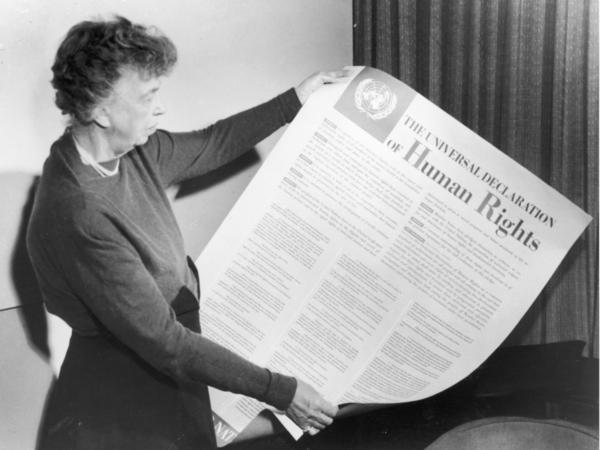Boundlessly idealistic, Universal Declaration of Human Rights is still resisted
Given the rivalries and violence that divide the global community today, it is hard to imagine that on December 10, 1948, the nations of the world approved, almost unanimously, a detailed list of fundamental rights that every human on the planet should enjoy.
The Universal Declaration of Human Rights, the most sweeping such statement ever endorsed on a worldwide basis, opened by asserting, "All human beings are born free and equal in dignity and rights."
In the immediate aftermath of two horrifying world wars, not a single member state of the newly created United Nations dared oppose the Declaration, though several abstained on the final vote.
That so many of the rights remain unachieved on its 70th anniversary testifies to the boundless idealism of the document's drafters.
The Declaration forbid slavery and servitude, forced marriage, arbitrary arrest, and any interference with privacy and correspondence. Everyone was said to have the right to own property, claim asylum, express opinions, and be educated.
By calling for an end to discrimination, the Declaration foreshadowed struggles for civil and political rights that were yet to come. Articles calling for equal pay for equal work and universal health care were among those on which the U.S. itself still falls short.
The document was largely the work of Eleanor Roosevelt, in her role as chair of the U.N. commission responsible for writing it.
Among the eight countries that abstained on the final vote were the Soviet Union and the five Soviet bloc states that were U.N. members at the time. South Africa, whose apartheid regime could not stomach any declaration condemning racial discrimination, also abstained. So did Saudi Arabia, claiming some rights listed in the Declaration were not consistent with Islamic law.
Some U.S. conservatives made clear their own unease with the Declaration, seeing its assertion of broad economic rights as a step toward socialism. The Soviets argued that it favored individual over collective rights and undermined national sovereignty.
At: http://www.kuer.org/post/boundlessly-idealistic-universal-declaration-human-rights-still-resisted#stream/0

An ongoing stuggle: Eleanor Roosevelt holds Universal Declaration of Human Rights, enacted 70 years ago.
